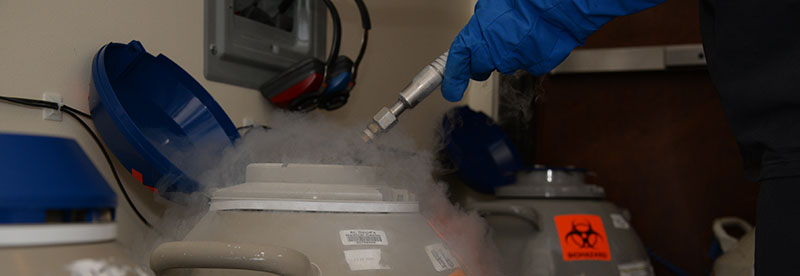The physicians and staff at The Fertility Center of Las Vegas were saddened to hear about the tragic recent storage tank failures at fertility centers in Cleveland and San Francisco. Despite safeguards, malfunctions occurred that potentially affected thousands of frozen embryos and frozen eggs. We convey our heartfelt sympathy to the patients as well as the physicians and staff at both fertility centers. We all understand the responsibility of safeguarding frozen tissues, and an event like this is devastating to everyone involved.
The entire industry is concerned over these tank failures. The American Society for Reproductive Medicine is currently investigating the recent incidents to determine the cause. We expect they will issue information regarding the event and updated guidance regarding appropriate safeguards.
In the 40 years since the birth of the first IVF baby, physicians and IVF laboratory personnel have been developing systems to prevent tragedies like these. As a result, despite performing more than 150,000 IVF cycles in over 450 IVF laboratories in the US each year, events such as these are extremely rare.
There are many reasons for this, including the fact that physicians and IVF laboratory personnel from around the world work together to share best practices for laboratory safety and security. We also work closely with industry to design better storage tanks and early detection systems that can immediately alert us to a potential problem.
Regardless, events like these understandably cause concern for our patients. For this reason, we will describe the specific safeguards that Ovation Fertility™ has in place to prevent – as much as humanly possible – anything like this from occurring.
Our laboratory is licensed by the State of Nevada and by CLIA, accredited by CAP, and inspected and regulated by both the state of Nevada and the FDA. This is typical of other IVF clinics, although state requirements may vary. Frozen embryos, sperm, and eggs are stored in large insulated tanks containing liquid nitrogen. These tanks have thick outer aluminum cases that surrounds many layers of insulation. This insulation is necessary, as liquid nitrogen has a temperature of -321° Fahrenheit (-196°C). At this temperature, eggs, embryos, and sperm can be successfully stored for many years and still function normally after thaw.
Each sperm, egg, or embryo specimen is clearly labeled and individually stored at the bottom of each cryotank and submerged in the liquid nitrogen.
The laboratory personnel perform inspections twice per week to monitor the level of liquid nitrogen in each tank. The normal level of evaporation is so slow that, a single filling with liquid nitrogen will sustain appropriate temperatures in a cryotank for about 11 weeks. However, we routinely refill each tank twice weekly to maintain an extra margin of extreme caution. Due to multiple layers of insulation and the aluminum outer casing, a catastrophic leak is very unlikely.
Again, while we are all awaiting more information from Cleveland and San Francisco, we assure you that FCLV and Ovation Fertility have procedures in place to guard against similar failures. We will thoroughly review information as it is released from Cleveland and San Francisco to ensure that we can improve our procedures if necessary. We remain confident that the safeguards that exist are well-designed to minimize any risk to your genetic material. Please contact us if you have any additional questions.








